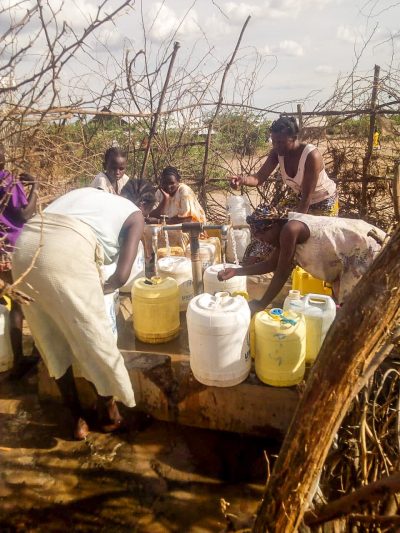By Pascal Zigashane
The world is facing a health threat and Kenya is finding it very crucial to contain the spread of COVID-19.
Kakuma refugee camp is an arid place with no agriculture activities. Refugees fully depend on food stock from other counties in Kenya, especially Kitale County. Fear rises amongst refugees if they become disconnected from other parts of Kenya. I talked to Chance Bahati, a business owner, who said that
“product prices have increased and the curfew has affected my business. Many people come to my shop late in the evening and now they are not coming because, all shops should be shut by 7pm.”
With restrictions put in place by the Government of Kenya and the UNHCR, refugees are hopeless to navigate this global health crisis. Several government services to asylum seekers and refugees have been suspended. This includes welcoming refugees and registration. The Refugee Affairs Secretariat has suspended all its activities in Nairobi and Kakuma refugee camp.
UNHCR Kakuma has passed information to refugees in Kakuma through a public system managed by FilmAid International. They have warned refugees not to leave the camp and that they will be arrested by Kenyan Police out of the camp. UNHCR will not take any responsibility and will not provide assistance to anyone who will test positive with COVID-19.
Health care providers in Kakuma, IRC (International Rescue Committee) and AIC (Africa Inland Church) are at risk. They don’t have COVID-19 prevention kits. They are very exposed to this pandemic disease. Distancing measures are not applicable. There are many patients who are suffering from other diseases at the clinic and they don’t understand distancing measures.
Monicah Atiek, who is a South Sudanese woman, shared with me her worries about women in Kakuma becoming the most victimized people.
“A community which has residents from different nationalities share 1 tap and all residents should fetch water from that tap. It is easy to contract the virus at the tap and spread it in the family.”

Refugee women at the Kakuma refugee camp fetching water from a tap to bring back to their families. [Photo courtesy of Pascal Zigashane]
She is also worried that her fellow refugees will contract the virus and die without medical personnel to attend them.
Despite many people not respecting the measures put in place to prevent the virus, few refugees are observing wash hand measures when they are at the police station and market places. More efforts are required to protect refugees from this deadly virus.
Pascal Zigashane is the executive director at URISE Initiative for Africa in Kakuma, Kenya. He worked with Kenya Red Cross Society, Refunit and Jesuit Refugee Service. Pascal also volunteers at Sky School as an education coordinator and IT support.